Last December, I visited Under Armour’s New York office to take a first look at the company’s new suite of connected fitness gear, which includes a wristband fitness tracker, chest-strap heart rate monitor, smart scale, wireless headphones, and connected shoes. UA’s goal is to offer a single, connected ecosystem for buyers who want to monitor all their fitness data—and so far, the hardware delivers on that promise. Under Armour says this launch is just the start; the company will bring more of its apparel into this connected system.��
The wristband, scale, and chest strap are sold together in the for $400 and are slated to ship February 15. Each piece can also be purchased separately. The wireless headphones cost an additional $180, and the upcoming heart rate–monitoring headphones (available later this year) will cost $250. The will be available February 29 for $150.��
For the past two months, I’ve been testing the gear daily. The UA Band on my wrist wakes me up every morning, seven hours after I hit the sack, with a gentle vibration. I then step on the UA scale, which shows how much progress I’ve made toward my target weight and body-fat percentage and syncs automatically via Wi-Fi to the UA Record app. I open the app on my phone, which shows my resting heart rate from the previous night.��
After logging breakfast in the MyFitnessPal app (also owned by Under Armour), I go for a run. I put on the wireless headphones, the SpeedForm Gemini 2 Record Equipped shoes, and chest strap. The strap turns on and syncs automatically by touch to the phone.��As I run, a small LED light on the wristband shows my current heart rate zone as recorded from the chest strap. The shoes automatically sync my time, distance, and splits.��
All of this data is recorded on the Record app as I try to reach my daily goals for activity, workouts, nutrition, and sleep. Now, let’s dive into the details.��
The Takeaway
The Good: All the hardware connects flawlessly, making continuous tracking easy. It’s also all beautifully designed.
The Bad: The price tag. The entire suite of gear costs up to $800. Of course, each item can also be purchased separately.��
The Verdict: Individually, these are some of the best fitness-tracking products on the market. Together, they give you a near unparalleled perspective on your fitness data. A single wristband is great, but if you want to geek out over numbers, multiple devices and sensors working together are even better.
The SpeedForm Gemini 2 Record Equipped Shoe
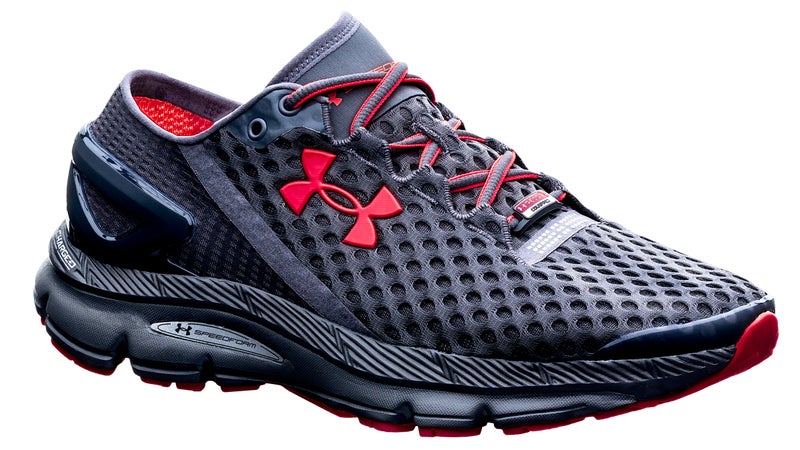
The shoes are my favorite part of the whole setup. The heel cup’s one-piece molded design makes these runners extremely stable, while the mesh on top and elastic-like material around the ankle offer a sock-like feel. I found the soles to be much more supportive than those of the .��
Here’s what makes them smart: a chip in the shoe tracks time, pace, and total distance. I found it to be more accurate than the GPS on my phone, and it can track up to five runs before syncing.��
The shoes have automatically tracked my runs since I first synced them to the MapMyRun app—I haven’t had to manually start recording a run. The shoes also sync with third-party apps, but the process isn’t quite as simple.��
The Band
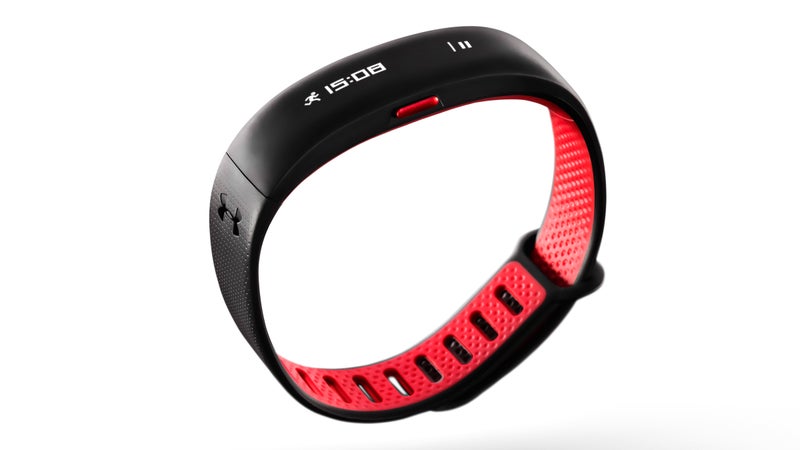
The is simple but does all the basics well. It tracks steps and resting heart rate when you’re asleep; has a vibrating alarm; relays calls, texts, and calendar events; and tracks various kinds of workouts. It won’t measure your heart rate throughout the day—you’ll need the chest strap for that—and you can’t respond to messages like you can with the Apple Watch, but frankly, that’s okay.
Other pros: it’s comfortable, with a dimpled underside and thin clasp. It also has a five-day battery life and charges in just 25 minutes.��
The Chest Strap
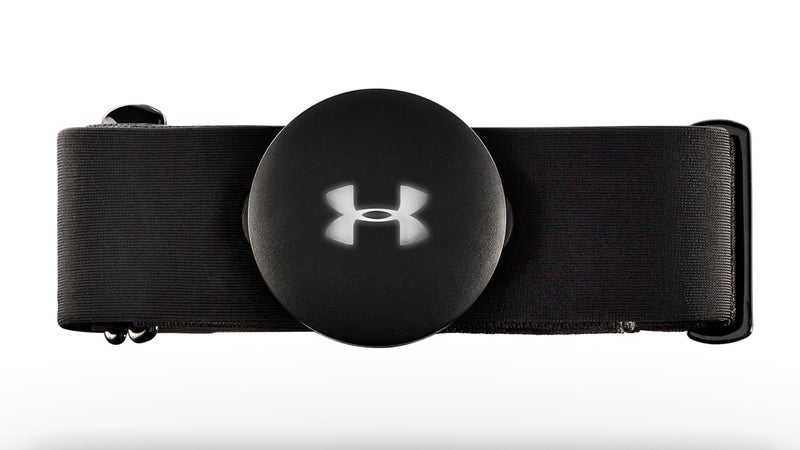
Wrist-based heart rate trackers still aren’t quite as accurate as chest straps. So if you’re really invested in your training, it’s nice to have a chest strap for serious workouts.
This strap synced easily with the wristband to show heart rate data and calories burned. During a workout, a small LED on the side of the Band displays your current heart-rate zone in real time. It’s an easy, quick reference showing whether you should increase or slow your pace depending on a set target. The chest strap has no screens or buttons—it just turns on automatically when you touch it. I’ve yet to have an issue with it.��
The Scale
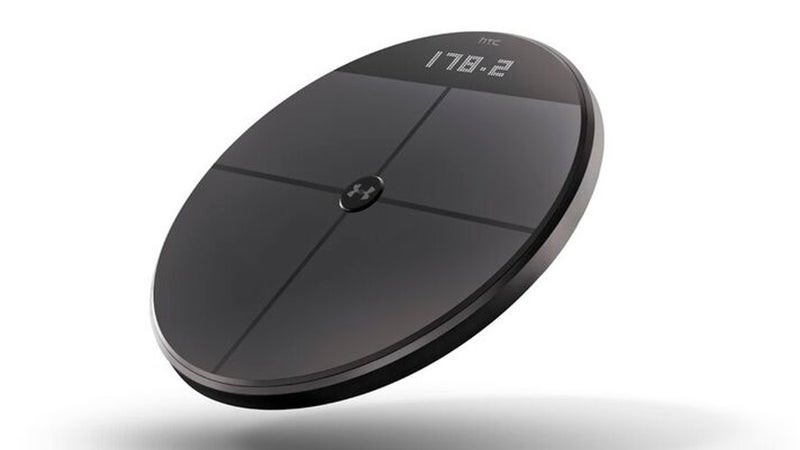
Like most modern scales, this one from UA measures weight and body fat percentage. What makes it special is how easily it connects to the rest of the fitness gear. It’ll automatically send stats via Wi-Fi to your digital profile.��
The scale allows multiple users to save profiles and automatically registers the correct user based on approximate weight. If you have multiple users who all weigh about the same, you can manually select a profile before stepping up.��
The Wireless Headphones
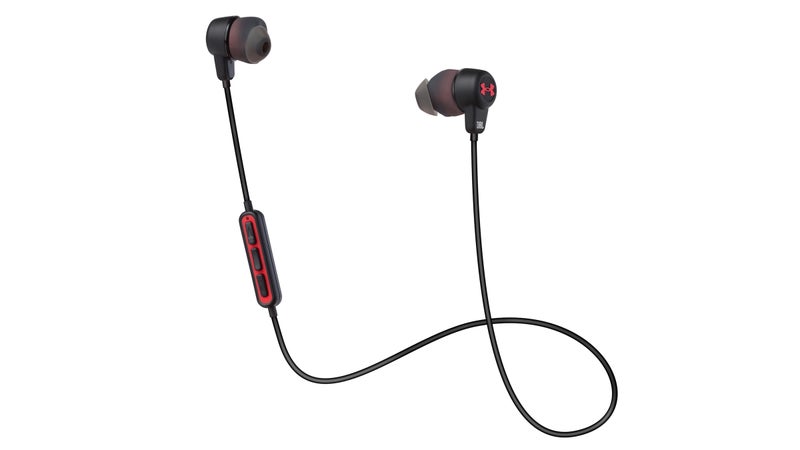
�ճ����, manufactured by Harman’s* JBL, have very large earbuds. I wasn’t sure they’d fit when I first saw them, but they turned out to be incredibly comfortable and have yet to fall out during a run or workout.
The battery life is comparable to that of other Bluetooth headphones and will last about eight hours. Like the Band, the earbuds charge very quickly.��
Under Armour plans to release a new edition of these headphones later this year that include in-ear heart rate monitoring, which we’ve found to be as accurate as a chest strap.
*The name of the company has been corrected.


